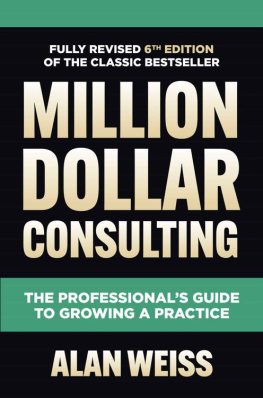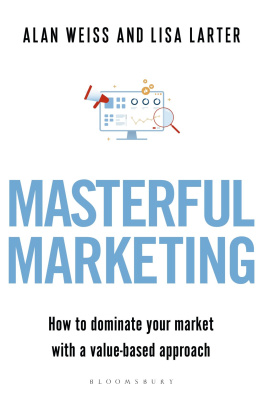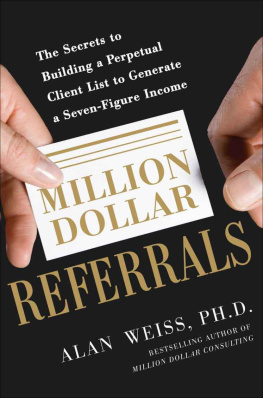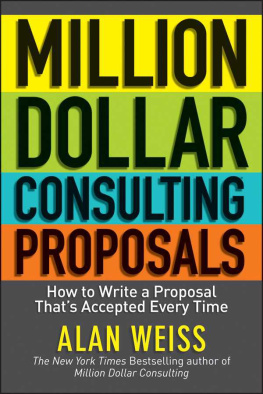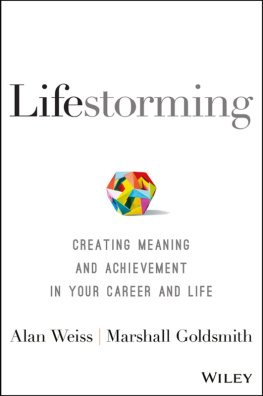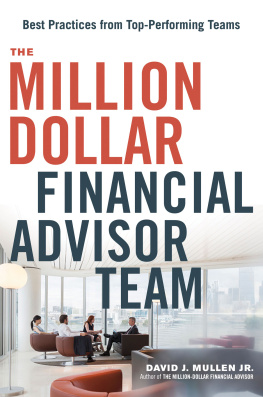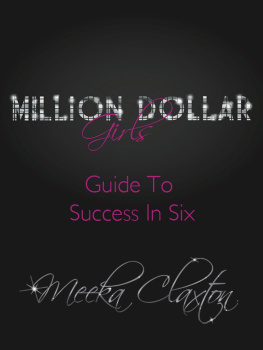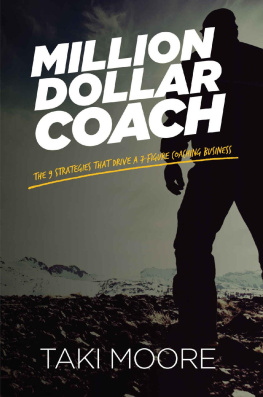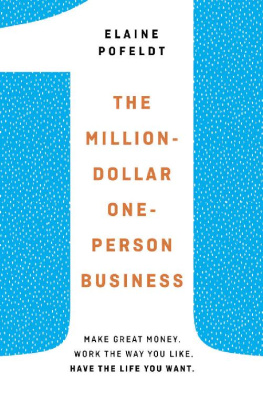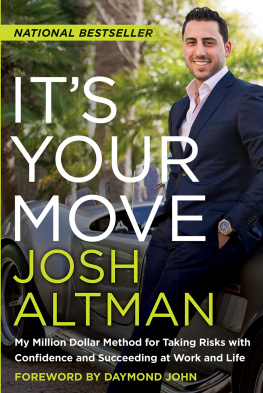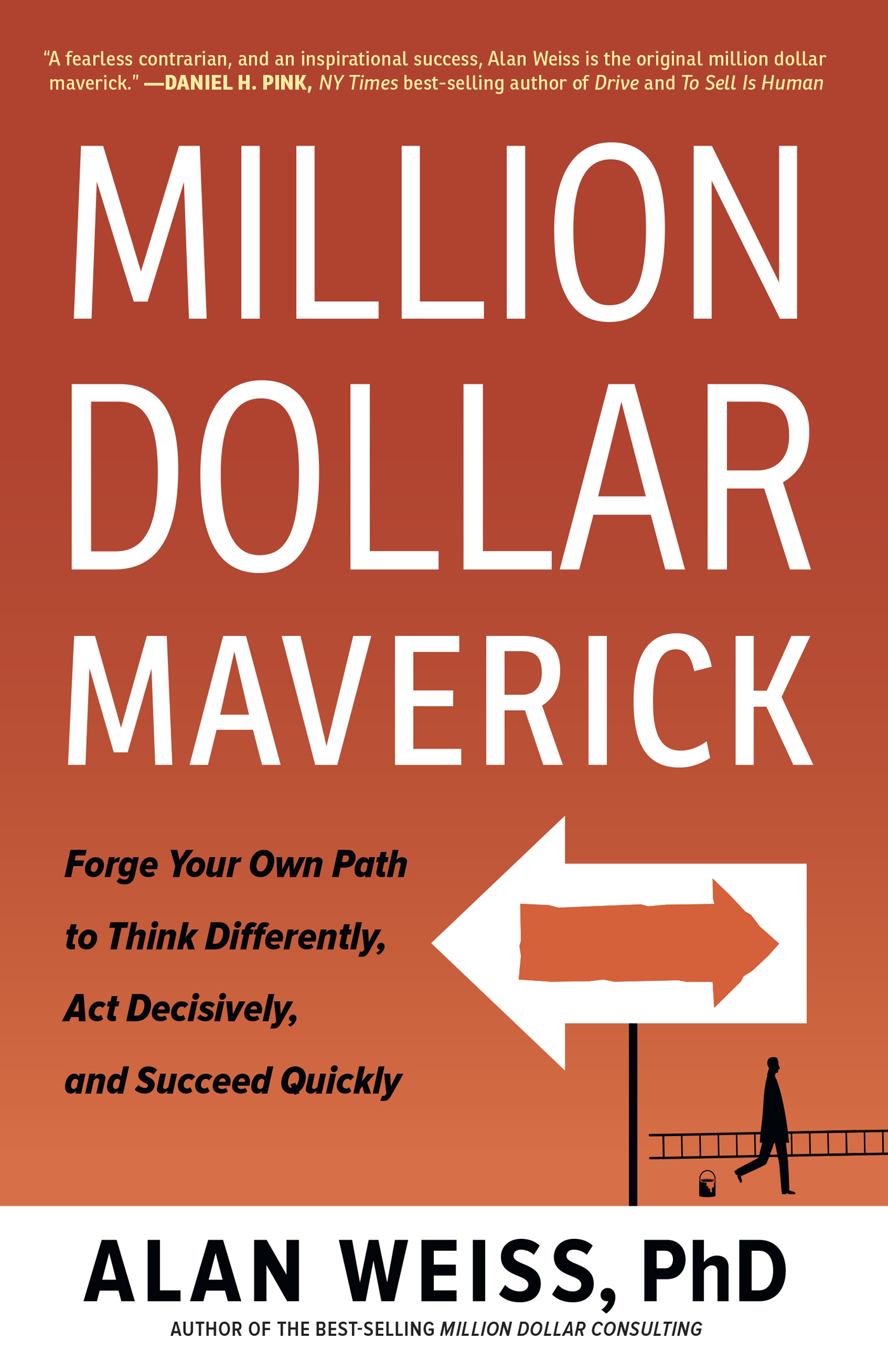My life was hugely formed by my grammar school teachers, who taught in an age when discipline was expected, parents didnt protect their children from it, and rules were important. They have influenced me more than my high school, undergraduate, and graduate instructors combined, an undiminished influence still present over half a century later.
Thank you: Mrs. Grothousen, Mrs. Stephanour, Mrs. Fleming, Miss Mandelkern, Mrs. Bowman, Mrs. OBrien, Mr. Heitman, Mrs. Johnson, Mrs. Lippert, and Miss Baratini.
Thanks to Barry Banther and his colleagues in the Elite Retreat I facilitate annually for suggesting the theme of this book. It had never occurred to me, an example of the benefits of surrounding yourself with smart people.
And thanks for Erika and Jill here at Bibliomotion, a publishing house that treats authors as friends, a novel concept!
Im told this is my sixtieth book, counting foreign translations and revised editions. Who would have thought?
Im a guy originally from modest means who quite simply looked at the wealth and opportunity available in this country as brilliant opportunity, since the only place I had to go was up! I never despaired; I always thought I had a chance. I knew I wouldnt win every contest, but I also knew I had no chance of winning if I didnt enter the contest, both literally and metaphorically, physically and emotionally.
In the 1950s I would sit on the floor in the entry to the bathrooms in public school with my jacket over my head. This wasnt a game, it was an air raid drill, and the bricks and mortar around me and cheap fabric over my head were supposed to protect me from the blasts and radiation of atomic bombs, should they rain down on Manhattan, a mile across the Hudson River.
I was in high school during the Cuban Missile Crisis, and I remember women crying in the hallways. Since those days, terrorism, Ebola, tsunamis, nuclear plant leaks, and MERS have all seemed serious, but never as terrifying. One thing age provides is a glorious perspective.
Ive spent most of my lifetime trying to help others. As I write this I have a global community of entrepreneurs who participatein person and virtuallyin myriad experiences under my auspices throughout the year, and often daily. Ive coached thousands of entrepreneurs and thousands of business executives, consulting with the some of the largest firms on the planet, and have worked with governors and the military, celebrities and authors, beauty queens and tech geniuses. My travels and work have taken me to more than sixty countries. Ive been lost in the Norwegian woods, accosted with a machine gun in Argentina, flown in airplanes hit by lightning on five different occasions, and piloted a WWII B-24 bomber and the Goodyear Blimp.
You get the ideaIve seen a lot. My wife told me an autobiography would be self-indulgent, and Ive been married to her for forty-seven years, so you have to think shes right about that. But my friends and publisher convinced me that a memoir covering what Ive learned and how Ive applied it to create great success and a wondrous life would be a book worth writing.
It appears theyre rightI have a thousand advance orders before Ive even finished the introduction, which isnt bad. Of course, my wife isnt one of them. But then again, shes seen it herself.
Im hoping this is the opportunity for you to see it, too.
Alan Weiss
East Greenwich, Rhode Island
This is the expressway to being comfortably different and uncomfortably contrarian: comfort the afflicted and afflict the comfortable. The black hole of convention entraps too many people in a gravity of failure they cant escape.
It was Bizarro World. Seventeen teachers sat in classroom seats while four students took turns lecturing to them. Unlike most classrooms in Emerson High School, the occupants in this one were paying rapt attention during the five minutes allotted each speaker. The eye contact was intense enough to require sunscreen.
This thirty-minute meeting was the complete audition and final vote for the first (and only) exchange student that Emerson would ever produce. The year was 1963, and an entrepreneurial local newspaper reporter had arranged for a Finnish student he had met to spend a half-year in each of the public high schools in Union City, New Jersey, a poor city, at the time the most densely populated city in the United States (fifty thousand people in about two square miles).
The committee of seventeen had chosen four nominees to be the return student (who would spend six weeks touring Europe, ending in Finland over the summer, since none of us was about to learn Finnish). They chose the quarterback and captain of the football team; the president of the yearbook; the president of the class; and me, the president of the student council and editor-in-chief of the school newspaper. We were apprised of the selections (back then no one argued about fairness or gender) and asked if we would accept if chosen, our parents were consulted, and then we were told to prepare to answer a question in front of the committee. The five-minute interview would determine, by immediate majority vote thereafter, who would have his life incredibly changed.
It was the height of the Cold War, and the question was this: How would you defend the United States to people you meet in Europe when youre asked about our foreign policy?
I had luck and pluck. Luck because my last name starts with W, and I was to be last in the alphabetic order. But heres the pluck. I had an inkling that this trip would have a profound change on my life, and I knew we could not just afford any college. I also knew that my hometown of Union Citythe embroidery capital of the world proclaimed the citys sign as you shot by on the way to the Lincoln Tunnel and New Yorkheld no future for me. I decided that I couldnt risk simply giving a better but similar answer to the others.
I had to give a completely different answer to truly stand out from everybody else. My turn was approaching.
I wouldnt defend the United States, I told the room of suddenly bolt-upright teachers. I would explain who we are and how were more similar to their own country than dissimilar. I went on from there.


